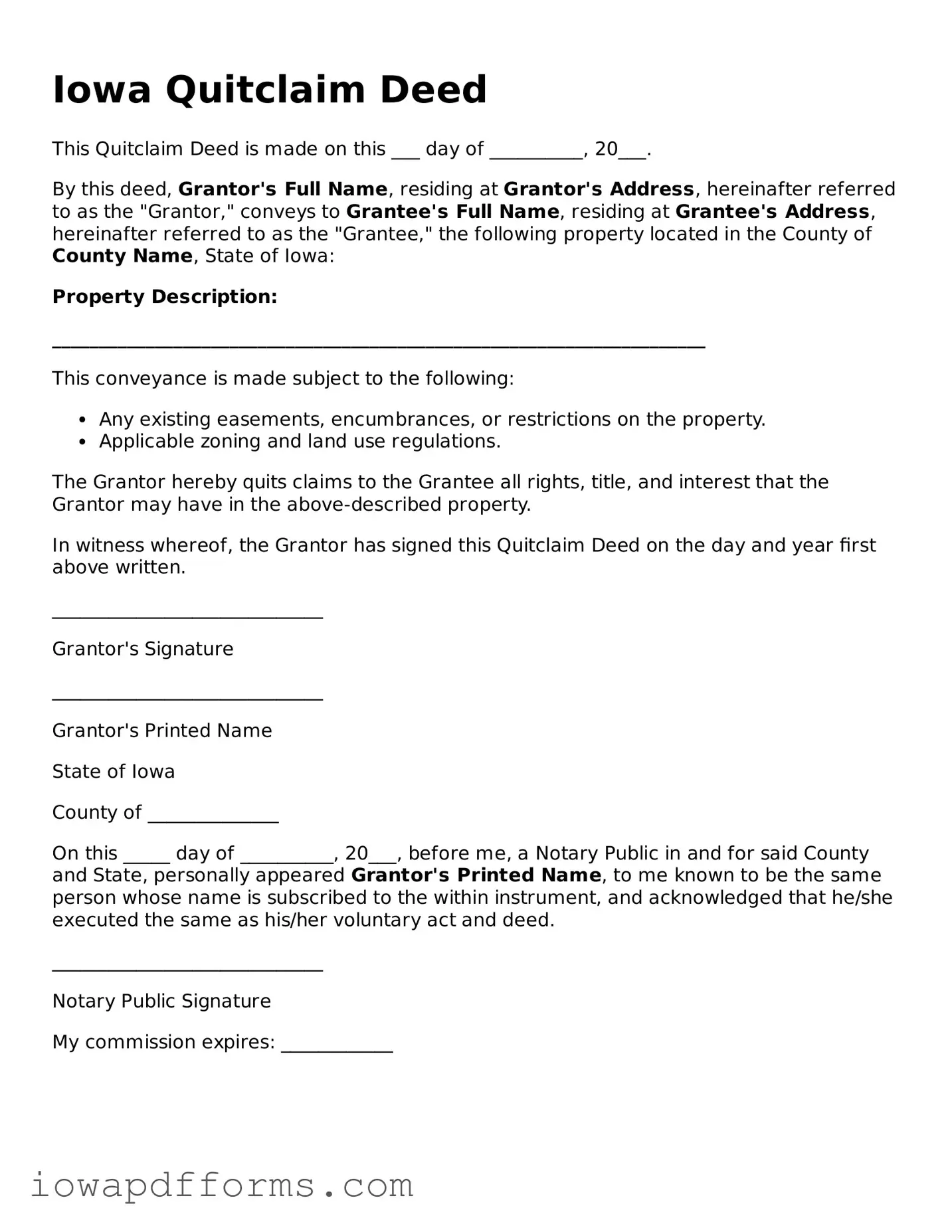Blank Quitclaim Deed Form for the State of Iowa
A Quitclaim Deed is a legal document that allows an individual to transfer their interest in a property to another party without making any guarantees about the title. This form is commonly used in Iowa for various property transactions, including transfers between family members or to clear up title issues. Understanding the Quitclaim Deed is essential for anyone involved in real estate transactions in the state.
Fill Out This Document Now

Blank Quitclaim Deed Form for the State of Iowa
Fill Out This Document Now

Fill Out This Document Now
or
Free Quitclaim Deed
Fast and easy form completion
Edit, save, download — complete Quitclaim Deed online today.